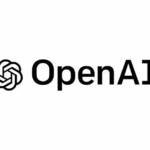Linus Torvalds, the creator and lead developer of the Linux operating system kernel, has given a stark assessment of the current artificial intelligence landscape during a recent interview at the Open Source Summit in Vienna.
The Finnish software engineer, known for his direct communication style, characterized the present state of AI technology as being “90% marketing and 10% reality,” expressing significant skepticism about the industry’s claims and promotional activities.
Industry Hype and Reality
During his interview with TFiR, Torvalds acknowledged AI’s potential while voicing strong criticism of the surrounding publicity. “I think AI is really interesting, and I think it is going to change the world. And, at the same time, I hate the hype cycle so much that I really don’t want to go there,” Torvalds stated.
The tech pioneer revealed his personal way of dealing with the AI phenomenon: “So my approach to AI right now is I will basically ignore it because I think the whole tech industry around AI is in a very bad position”
Future Prospects
While maintaining his critical stance, Torvalds suggested that the technology’s true value might become more apparent in the coming years. He projected that within five years, there would be clearer evidence of AI’s practical applications in everyday workloads.
The Linux creator did acknowledge some current applications of AI technology, particularly in areas such as graphic design. He admitted that while ChatGPT, a large language model, provides impressive demonstrations, he can hardly stand the hype.
Broader Industry Skepticism
Torvalds’ perspective aligns with other industry leaders who have expressed similar doubts about the current state of AI development. His views echo recent statements from Baidu’s CEO, who suggested an even more pessimistic outlook, predicting that only 1% of AI companies would survive an impending market correction.
The criticism comes at a time when significant investments are being made in AI technology across various sectors, despite ongoing challenges with reliability and practical implementation. Issues such as AI model hallucinations and the lack of clear paths to profitability continue to raise questions about the technology’s current capabilities versus its marketed potential.




